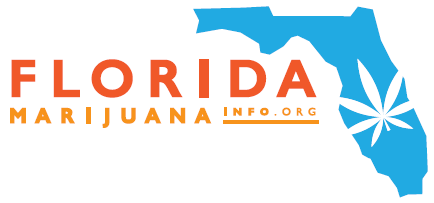Marijuana Addiction: Symptoms, Science & Treatment
Marijuana is the most commonly used illegal substance in the United States. According to the National Institutes on Health, over 42% of people over the age of 12 have used marijuana at least once in their lifetime. The percentage should continue to grow over the next ten years as the push for legalizing marijuana for both medical and personal use continues.
It is important to have a solid understanding of the side effects that precede medical conditions such as a stroke or heart attack or the effects of drugs like acetaminophen or alcohol. The same is true for marijuana use. The more we understand the side effects of marijuana and the treatment options available, the better we can diagnose problems and complications in the early stages.
In this article, we cover the signs and symptoms of marijuana addiction and highlight the most common treatment options for each symptom.
Signs and Symptoms of Marijuana Addiction
As the use of Marijuana gradually gains popularity in the United States, it is important for both users and non-users to have an understanding of the signs and symptoms of marijuana addiction.
As with many drugs, long-term use of marijuana can result in addiction. Addiction to marijuana, in some cases, closely resembles addiction to nicotine from cigarettes or chewing tobacco.
Those addicted to the substance have been known to experience withdrawals when deprived of the drug after long periods of use.
Other symptoms, however, are much less obvious and may take focused attention to diagnose.
Symptoms such as increased aggression, difficulty sleeping, craving for sweet foods, and excessive anxiety have all been associated with marijuana addiction and can be triggered by going without the substance for one week or more.
The Science of Marijuana Addiction
When marijuana is smoked, tetrahydrocannabinol (THC), the psychoactive ingredient in the cannabis plant, enters the lungs where it is passed into the bloodstream and carried to organs throughout the body and into the brain.
When THC hits the brain it triggers a feeling of euphoria, or “high” by mimicking or blocking neurotransmitters and can interfere with normal brain functions.
Specifically, the THC affects the cannabinoid receptors in the brain, which control mental and physical activities such as short-term memory, coordination, and learning.
Treatment for Marijuana Addiction
There are two common approaches to treating marijuana addiction: psychological and pharmacological.
At the moment, the pharmacological approach is limited to research and no effective medication has been discovered. Therefore, marijuana addiction is treated solely through psychology.
Psychological Treatment Approach
The psychological approach focuses on the mind and behavioral aspects of marijuana use. It incorporates methods such as cognitive behavioral therapy, contingency management, and twelve-step programs that are closely modeled to the approach taken by Alcoholics Anonymous.
Many of the approaches used for general addictions are applied to treatment for marijuana addiction. While the substance may vary, the same psychological principles that govern addiction to one drug are the same for another.
Pharmacological Treatment Approach
While there are currently no medical treatments available for treating marijuana addiction, there is ongoing research in this area. The most common topics for research in this area are centered around neurotransmitter systems and the blocking or inhibiting of THC and its affect on the areas of the brain.
At this point, a few clinical trials of medications have shown to reduce cravings and limit the effects of depression brought on by marijuana addiction, yet the results have been inconclusive.
The Takeaway
In the next few years, having knowledge of marijuana addiction will become increasingly important as the efforts to legalize marijuana in states through the U.S. including Florida progress.
Eventually, the ability to recognize and diagnose marijuana addiction through side effects and signs may be as common as CPR or recognizing the signs of a stroke.
It could be the skill that allows you to stop a loved one on their path toward addition or possibly identify the symptoms in your own life and keep them under control.
As research for the pharmacological treatment of marijuana addiction progresses we may find that more treatment options for addiction become available in the coming years. For now, the psychological treatment is the best option for those addicted to the substance and has proven effective in multiple cases.












 OMD Agency
OMD Agency
Recent Comments